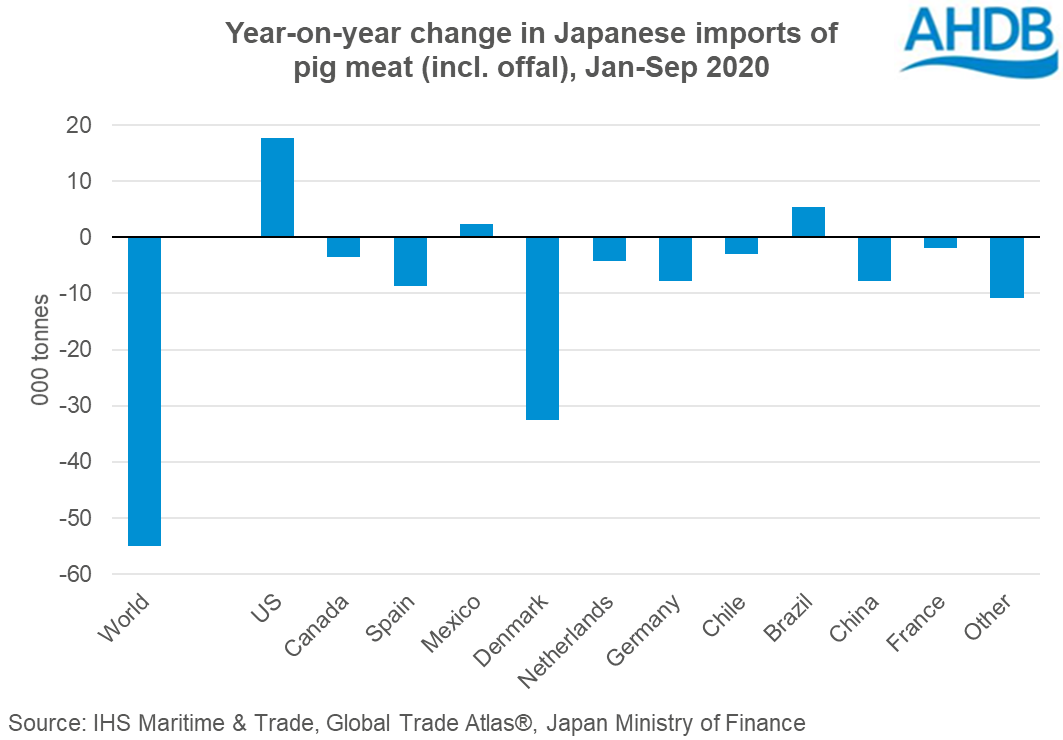Japanese imports of pig meat (incl. offal) between January and September totalled 862,600 tonnes, down 6% on the same period in 2019, according to the latest numbers from AHDB.
Despite incoming shipments of US pig meat increasing 6% year-on-year during the nine-month period, AHDB analyst Hannah Clarke reported that lower volumes from elsewhere, particularly Denmark, outweighed this.
Imports from Denmark fell 35% year-on-year, totalling 59,700 tonnes for the period. There were also notable decreases in shipments from Spain (-9%), Germany (-26%) and China (-38%), among others.

Ms Clarke said that the fall in import demand is most likely due to a disruption in the food service industry, as reports suggest that frozen pork, which makes up the bulk of imports, is used more widely in the food service industry than for the retail market.
Covid-19 disruption of the Japanese foodservice sector has reportedly shifted trade away from frozen pork to fresh/chilled, potentially explaining growth in US shipments and losses from European suppliers, with the latter supplying predominantly frozen pork. This is reflected in the latest numbers as between January-September, Japanese imports of frozen pork fell 12% year-on-year, while fresh/chilled volumes grew 2%.
Ms Clarke added that according to the USDA, Japan’s pork production is expected to grow in 2020 due to herd expansion, explaining: “Reports suggest that prices have been bolstered by rising retail demand, with consumers cooking more at home due to the pandemic. Market analysts Rabobank expect that Japanese pork imports will remain subdued into quarter four, as while there has been growth in retail sales, this has not been enough to outweigh foodservice losses.”




